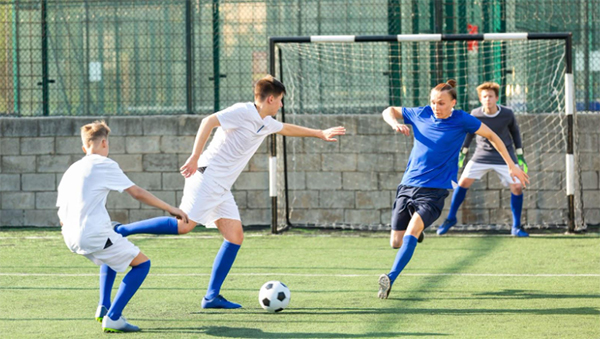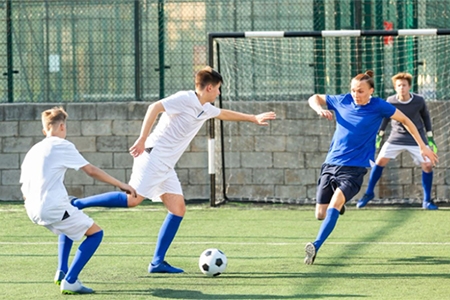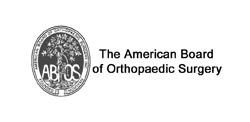
An unexpected knee injury can disrupt both athletic performance and everyday life. ACL and meniscus tears frequently occur due to sudden movements, awkward landings, or impact injuries. Identifying the problem early and choosing the right treatment can help ensure a smooth recovery with minimal disruption to your routine.
Recognizing ACL Tear Symptoms
The anterior cruciate ligament (ACL) stabilizes the knee during quick movements, like cutting, pivoting, or sudden stops—all essential actions in spring sports like soccer. An ACL tear often happens when the knee twists unnaturally or from a direct blow to the knee. Symptoms include:
- A popping sensation at the time of injury
- Severe swelling within hours
- Instability or the knee "giving out" during movement
- Pain and limited range of motion
Recognizing Meniscus Tear Symptoms
The meniscus is a cartilage cushion in the knee that absorbs shock and supports stability. A tear can occur from a twisting motion, a deep squat, or direct impact—common in soccer tackles. Symptoms include:
- Locking or catching in the knee
- Swelling and stiffness
- Pain when twisting or bending the knee
- Difficulty straightening the leg completely
Imaging Tests to Confirm the Diagnosis
Following a physical examination to assess knee stability and movement, you may have to undergo MRI scans to confirm ligament or cartilage damage and X-rays to rule out fractures.
Treatment Options to Get You Back in the Game
For minor meniscus tears or partial ACL injuries, a conservative approach may be effective that includes physical therapy to strengthen surrounding muscles, bracing for added knee support, and anti-inflammatory medication to reduce pain and swelling
For complete ACL tears or severe meniscus damage, surgery is often necessary for a full recovery. A torn ACL ligament is replaced with a graft from your own tissue obtained from your hamstring tendon or your patellar tendon. In the case of a meniscus tear, the torn edges of the meniscus are stitched together. In severe cases, the damaged tissue is trimmed.
Rehabilitation: The Road to Recovery
Recovery takes 6-12 months, depending on the injury and treatment. A structured rehabilitation program will be necessary that focuses on restoring knee strength and stability, regaining full range of motion, and progressive return to running and sports-specific drills.
If you’ve suffered a knee injury playing soccer or other spring sports, the right diagnosis and treatment can get you back on the field safely and stronger than before. Schedule a consultation with Dr. DiGiulio today for an accurate diagnosis and personalized treatment recommendation.
AUTHOR: Milan M. DiGiulio, M.D. offers comprehensive Orthopaedic care for you and your entire family, specializing in Sports Medicine and Arthroscopic surgery of the shoulder and knee. Dr. DiGiulio performs over 200 arthroscopic shoulder and knee surgeries each year, using the most advanced surgical technology. Dr. DiGiulio is an advocate of non-invasive, non-surgical treatment options such as Physical Therapy and Orthobiologics.







